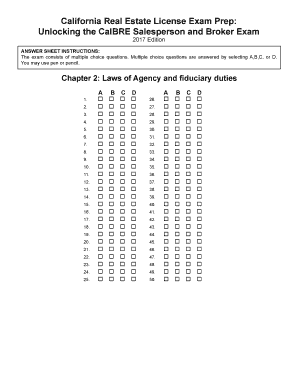
Appraisers of real estate value personal and tangible property. They use their knowledge, training, and experience to produce credible results for clients and others who need them. Appraisals are important to home buyers, sellers, lenders and real estate agents.
An appraiser of homes is someone who's completed a course that allows them to evaluate real estate and charge a fee. They typically work for a private company that specializes in property valuation.
A real estate appraiser's main duties are to research and assess the exterior and interior properties. Any special requirements from a lender must be taken into consideration by the appraiser.
They must ensure that they have the most accurate information to give their clients' reports. Sometimes they will need to work with a team or experts in order to complete an appraisal.

The United States Government regulates their work and issues licenses to them. For licensure, certain states require specific education requirements and passing scores on exams.
You must meet the requirements of your state's appraisal regulatory agency in order to be a real estate appraiser. You can find out more about the education and working experience required by your state by visiting your local real estate bureau's website.
Once you have met the requirements for education and work experience, you can submit your application to the state's appraisal regulatory agency. You should attach a copy of your degree certificate as well as proof of work experience.
The licensing process usually takes a couple of months, and you should be prepared to sit for an exam that consists of 125 questions. You can practice the exam at your local real estate agency or online course.
To determine the market value of a property, a real-estate appraiser will use one of three approaches: the cost approach (income), the cost approach (cost), and the sales comparability approach (sales comparison). Each method is different and has its strengths. It also works best with a certain set of properties.

The income approach is where a real-estate appraiser looks at the property's net operating revenue. This is calculated by subtracting the cost of maintaining it. This income can either be calculated monthly, or yearly. It can then be multiplied by a factor of years to arrive at an estimated value.
Some real estate appraisals also use the sales comparison approach, which consists of looking for comparable homes that have sold in the area within the last six months. This approach is best when there are many similar properties in the area, or it is difficult to identify the unique features of the property being appraised.
An appraiser will compare the property's features with the subject property to determine the estimated market value. This value is sometimes added or subtracted to get a better idea of the home's actual market value.
FAQ
How can you tell if your house is worth selling?
You may have an asking price too low because your home was not priced correctly. A home that is priced well below its market value may not attract enough buyers. Get our free Home Value Report and learn more about the market.
Can I get another mortgage?
Yes, but it's advisable to consult a professional when deciding whether or not to obtain one. A second mortgage can be used to consolidate debts or for home improvements.
What are the disadvantages of a fixed-rate mortgage?
Fixed-rate loans are more expensive than adjustable-rate mortgages because they have higher initial costs. Additionally, if you decide not to sell your home by the end of the term you could lose a substantial amount due to the difference between your sale price and the outstanding balance.
Do I need a mortgage broker?
A mortgage broker may be able to help you get a lower rate. Brokers work with multiple lenders and negotiate deals on your behalf. Brokers may receive commissions from lenders. You should check out all the fees associated with a particular broker before signing up.
What should I consider when investing my money in real estate
You must first ensure you have enough funds to invest in property. If you don’t have the money to invest in real estate, you can borrow money from a bank. Also, you need to make sure you don't get into debt. If you default on the loan, you won't be able to repay it.
Also, you need to be aware of how much you can invest in an investment property each month. This amount must cover all expenses related to owning the property, including mortgage payments, taxes, insurance, and maintenance costs.
It is important to ensure safety in the area you are looking at purchasing an investment property. It would be a good idea to live somewhere else while looking for properties.
What time does it take to get my home sold?
It depends on many factors, such as the state of your home, how many similar homes are being sold, how much demand there is for your particular area, local housing market conditions and more. It can take from 7 days up to 90 days depending on these variables.
Statistics
- Based on your credit scores and other financial details, your lender offers you a 3.5% interest rate on loan. (investopedia.com)
- Private mortgage insurance may be required for conventional loans when the borrower puts less than 20% down.4 FHA loans are mortgage loans issued by private lenders and backed by the federal government. (investopedia.com)
- The FHA sets its desirable debt-to-income ratio at 43%. (fortunebuilders.com)
- Over the past year, mortgage rates have hovered between 3.9 and 4.5 percent—a less significant increase. (fortunebuilders.com)
- Some experts hypothesize that rates will hit five percent by the second half of 2018, but there has been no official confirmation one way or the other. (fortunebuilders.com)
External Links
How To
How to manage a rental property
While renting your home can make you extra money, there are many things that you should think about before making the decision. This article will help you decide whether you want to rent your house and provide tips for managing a rental property.
Here are some things you should know if you're thinking of renting your house.
-
What is the first thing I should do? Before you decide if your house should be rented out, you need to examine your finances. If you have any debts such as credit card or mortgage bills, you might not be able pay for someone to live in the home while you are away. Your budget should be reviewed - you may not have enough money to cover your monthly expenses like rent, utilities, insurance, and so on. This might be a waste of money.
-
How much will it cost to rent my house? The cost of renting your home depends on many factors. These include factors such as location, size, condition, and season. Keep in mind that prices will vary depending upon where you live. So don't expect to find the same price everywhere. The average market price for renting a one-bedroom flat in London is PS1,400 per month, according to Rightmove. This means that if you rent out your entire home, you'd earn around PS2,800 a year. That's not bad, but if you only wanted to let part of your home, you could probably earn significantly less.
-
Is it worth it? You should always take risks when doing something new. But, if it increases your income, why not try it? It is important to understand your rights and responsibilities before signing anything. Your home will be your own private sanctuary. However, renting your home means you won't have to spend as much time with your family. Make sure you've thought through these issues carefully before signing up!
-
Are there benefits? There are benefits to renting your home. You have many options to rent your house: you can pay off debt, invest in vacations, save for rainy days, or simply relax from the hustle and bustle of your daily life. It's more fun than working every day, regardless of what you choose. And if you plan ahead, you could even turn to rent into a full-time job.
-
How can I find tenants Once you decide that you want to rent out your property, it is important to properly market it. Make sure to list your property online via websites such as Rightmove. Once potential tenants reach out to you, schedule an interview. This will help you evaluate their suitability as well as ensure that they are financially secure enough to live in your home.
-
What are the best ways to ensure that I am protected? If you're worried about leaving your home empty, you'll need to ensure you're fully protected against damage, theft, or fire. Your landlord will require you to insure your house. You can also do this directly with an insurance company. Your landlord will typically require you to add them in as additional insured. This covers damages to your property that occur while you aren't there. If you are not registered with UK insurers or if your landlord lives abroad, however, this does not apply. In these cases, you'll need an international insurer to register.
-
Sometimes it can feel as though you don’t have the money to spend all day looking at tenants, especially if there are no other jobs. However, it is important that you advertise your property in the best way possible. You should create a professional-looking website and post ads online, including in local newspapers and magazines. You'll also need to prepare a thorough application form and provide references. While some prefer to do all the work themselves, others hire professionals who can handle most of it. It doesn't matter what you do, you will need to be ready for questions during interviews.
-
What do I do when I find my tenant. If you have a current lease in place you'll need inform your tenant about changes, such moving dates. Otherwise, you can negotiate the length of stay, deposit, and other details. Keep in mind that you will still be responsible for paying utilities and other costs once your tenancy ends.
-
How do I collect my rent? When it comes time for you to collect your rent, check to see if the tenant has paid. If they haven't, remind them. After sending them a final statement, you can deduct any outstanding rent payments. You can always call the police to help you locate your tenant if you have difficulty getting in touch with them. They will not usually evict someone unless they have a breached the contract. But, they can issue a warrant if necessary.
-
How do I avoid problems? You can rent your home out for a good income, but you need to ensure that you are safe. You should install smoke alarms and carbon Monoxide detectors. Security cameras are also a good idea. You should also check that your neighbors' permissions allow you to leave your property unlocked at night and that you have adequate insurance. You must also make sure that strangers are not allowed to enter your house, even when they claim they're moving in the next door.